
It’s one of the most heated debates in the digital marketing world. The subject of SEO vs PPC usually comes up when companies decide how to allocate their time and money, and it’s an important debate for small businesses that are trying to improve their marketing efforts.
Should you buy your way in Google’s top search results via pay-per-click (PPC) advertising, or should you create a search engine optimization (SEO) strategy to cultivate an organic audience?
We’ll answer these questions and more in the following article. Read on to understand the pros and cons of SEO and PPC, and to discover the best way to attract and qualify leads.
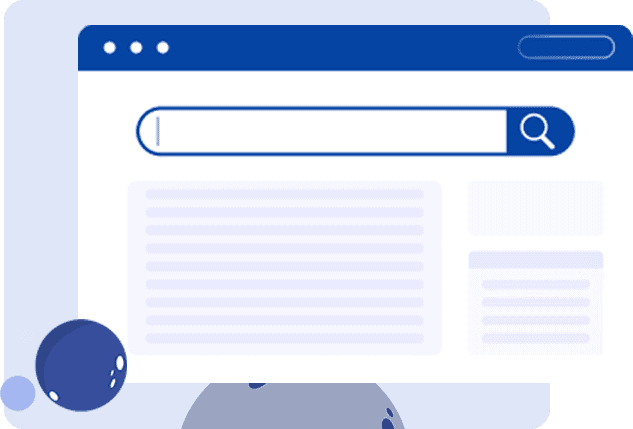
Search engine optimization (SEO) is a set of strategies and processes that improve your website’s visibility in search engines. But what does that mean?
Well, here’s an example. Let’s say that your website sells red sneakers. Naturally, you want people to be able to find your website when they enter the term “red sneakers” into a search engine. And since people are typing in the term in search engines, “red sneakers” becomes the main keyword for this search.
But when you enter the keyword in Google (or any other search engine because they all use similar algorithms), you get about 2,860,000,000 results. People aren’t going to find your website if it’s listed as the 2,859,999,999th result.
A good SEO strategy can help your website rank higher and appear among the first search engine results for any keyword.
How can SEO help you do that? Well, to understand that, we need to take a quick look at how search engines work.

When you search for something in a search engine, the algorithm scans the trillions of pages in its index to find the best results for your query.
Nobody knows for sure how the algorithms work because search engines don’t make this information public, but we know that they classify the results based on a combination of the following factors:
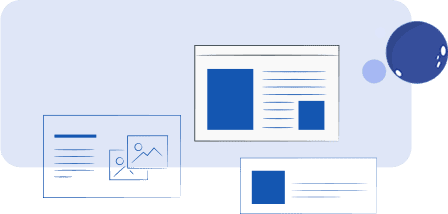
You searched for “red sneakers”, so Google can say with a fair amount of certainty that you’re not looking for blue high heels. That’s why the first pages it displays are always relevant to your search.
But this raises a new question - how does the algorithm know which websites to show on the first page when there are millions of them selling red sneakers worldwide?
Well, the best websites have to meet the next requirement.
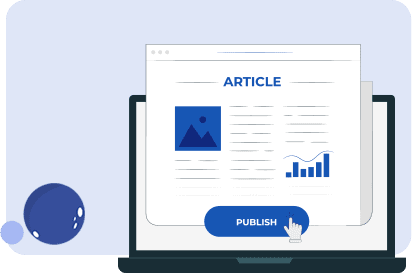
Google wants to display relevant search results, but it also values the usefulness of the content you’re about to see.
Following our example, let’s say that the first result you see when searching for “red sneakers” is a page explaining how red sneakers are made. The page goes into a lot of details, describing how the outsole is made, how it’s attached, and more.
But you’re not interested in learning how to make red sneakers, you want to buy a pair, so you go back to the search results and look for another website.
Now, you click on the second result and reach a page that showcases several different pairs of red sneakers. This is what you’ve been looking for. You take your time, browsing each pair, looking at photos, comparing prices, and so on.
Google notices these interactions. Based on the small amount of time you spent on the first website, the algorithm determines that this result was not optimal for your search. And based on the amount of time and the actions you took on the second website (enlarging photos, clicking on prices, etc), it determines that the second website was a better result for your query.
The algorithm interprets the user signals from billions or trillions of similar interactions every day, and it ranks useful pages higher than less helpful ones.
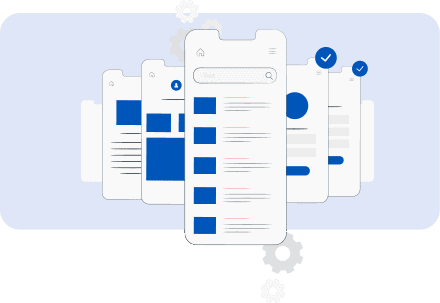
User experience has become one of the most important search engine ranking factors in the last several years.
More and more people browse websites on mobile devices, so search engines want to make sure that the first search results they display are mobile-friendly and provide a good browsing experience.
The search engines take into account hundreds of factors in order to determine a website’s user experience, including

Search engine algorithms want to show you results that come from safe, secure, and authoritative websites.
When search engines examine a webpage, they determine its authority based on the number of websites that link to that page.
If a lot of websites link to a certain page, search engines determine that the page is authoritative because other websites use it as a source of information.
The links a website gains from other websites are called “backlinks” and they can also influence a page’s search results ranking. Pages with more backlinks generally rank higher than others.
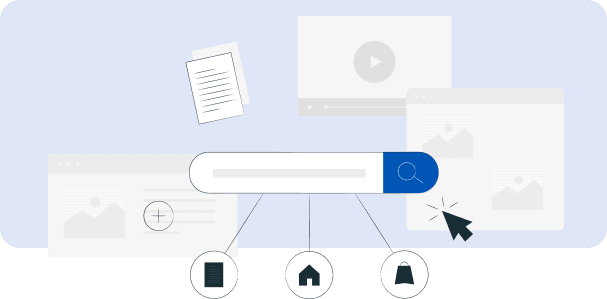
SEO means implementing a series of strategies and processes to optimize a webpage based on the factors that influence the page’s search engine ranking. This means
It’s important to note that these factors are not equally important for the algorithm. While offering a great page experienceis ideal, Google may still rank pages that offer a poorer experience but better content higher.
The purpose of SEO is to create pages that are so good, search engines can’t help but show them among the first search results organically.
PPC means pay-per-click, and it’s a form of digital advertising that enables websites to attract visitors with paid ads. You can use PPC ads on search engines and social networks, but for the purpose of this article, we’re going to focus on PPC for search engines.
PPC ads enable websites to buy their spot on the search engine’s top results in order to attract visitors.
When you use PPC, the search engine charges you a small fee to display your website high on the search results page. But you only pay that fee when users click on the link leading to your website.
When done correctly, PPC campaigns can help you attract a lot of potential customers.
Let’s use our previous example to explain how PPC works.
We already established that you get about billions of results when you search for “red sneakers”. Now, let’s say that some of your competitor websites rank higher than you for that particular keyword.
PPC advertising enables you to place a bid on that keyword, so when someone searches for “red sneakers”, your ad will show up on the first pages of the search results. And whenever someone clicks on your ad, the search engine will charge whatever amount you bid.
But here’s the thing, Google values the quality of your PPC ads. Its algorithm calculates the Quality Score based on a combination of the following factors
If your ads have a high Quality Score, you get to pay a lower price for each click. If you have a low score, you have to bid more to show up as the first website in the search results.
Want to know a secret? SEO helps improve the quality of your website, so it helps improve your Quality Score and lower your PPC costs.
The main difference between SEO and PPC is how they generate results. SEO takes longer to produce results, but it’s cost-effective and enables you to gradually attract larger audiences for long periods of time. PPC enables you to attract huge audiences in a matter of days, but it’s more expensive and those audiences disappear immediately after you stop your advertising campaign.
Both SEO and PPC have pros and cons. Let’s take a look them
| SEO | |
|---|---|
| Pros | Cons |
| Very cost-effective long term | Slow. Can take several months to see notable results |
| Last longing organic growth | Ongoing process that’s never over |
| Stable position in search engines | Consumes time or resources |
| Generates sustainable traffic and results | Not great for analytics and A/B testing |
| Helps with brand awareness | Offers less control over performance |
| Builds credibility and trust | |
| High return on investment | |
| High click-through rates | |
| Strategic advantage over PPC | |
| PPC | |
|---|---|
| Pros | Cons |
| Immediate boost in search engine results | You pay for results. The results stop immediately after you stop paying |
| Scalable and controllable | Consumes time or resources |
| Wider audience than SEO | Grows less effective and more expensive over time |
| Can target specific audiences | May require bigger budgets |
| Helps with brand awareness | |
| Great for product-based businesses | |
| Great for gathering marketing data and A/B testing | |
It’s impossible to say whether a business could benefit more from SEO or PPC without knowing what the business sells, its target audience, competitors, and previous marketing efforts. Every business is unique, and the marketing approach should be tailored to the company’s needs and goals.
However, using both SEO and PPC to promote your business can help you reach a wider audience, qualify your leads, and create a sustainable marketing funnel.